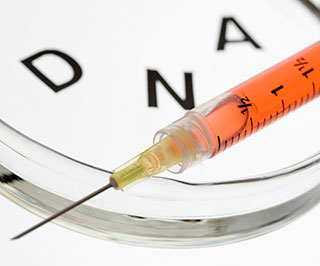 Image credit: Creatas Images/Thinkstockphotos.com
Image credit: Creatas Images/Thinkstockphotos.com
A study published in Proceedings of the National Academy of Sciences (PNAS) suggests that phage therapy may prove useful in reversing the longstanding problem of antibiotic resistance in bacteria.
Phage therapy has gained renewed interest in the wake of increasing concerns over antibiotic resistance of pathogens, the study’s authors explain. The therapy, which employs natural bacterial enemies known as phages to eliminate pathogens, has encountered some difficulties in the past, “such as delivery barriers into the tissues and bacterial resistance to phages,” the article stated.
To address these hurdles while effectively reversing antibiotic resistance, Udi Qimron of the Department of Clinical Microbiology and Immunology at Tel Aviv University in Israel and his colleagues used lambda and T7 phages “for delivering a programmable DNA nuclease, clustered regularly interspaced short palindromic repeats (CRISPR)–CRISPR-associated (Cas), to reverse antibiotic resistance and eliminate the transfer of resistance between strains,” according to the article.
Phages essentially deliver “edited” DNA into bacterial pathogens, which effectively kills off antibiotic resistance in selected bacteria, while re-sensitizing other bacteria to antibiotics, according to a statement issued by American Friends of Tel Aviv University.
As a PNAS summary of the research explains, Qimron and colleagues “transferred into the genome of antibiotic-resistant bacteria a CRISPR-Cas gene-editing system that was programmed to seek and disrupt genes encoding β-lactamase enzymes, which confer resistance to last-resort antibiotics. The authors also inserted identical β-lactamase-encoding CRISPR-Cas target sequences into T7 phages, which are lethal to bacteria. When grown on agar dishes coated with the modified T7 phages, bacteria containing the engineered lambda phage were found to be sensitive to the targeted antibiotics, and 20-fold more resistant to the engineered T7 phages compared with control bacteria, which remained antibiotic-resistant.”
This method essentially restored antibiotic sensitivity to drug-resistant bacteria, while preventing the transfer of genes that create bacterial resistance to antibiotics, Qimron said in the statement. "We believe that this strategy, in addition to disinfection, could significantly render infections once again treatable by antibiotics,” he added.
The next project for Qimron and his team is to test in mouse cages the CRISPR/phage system on Pseudomonas aeruginosa, an antibiotic-resistant bacteria known to cause hospital-acquired infections.